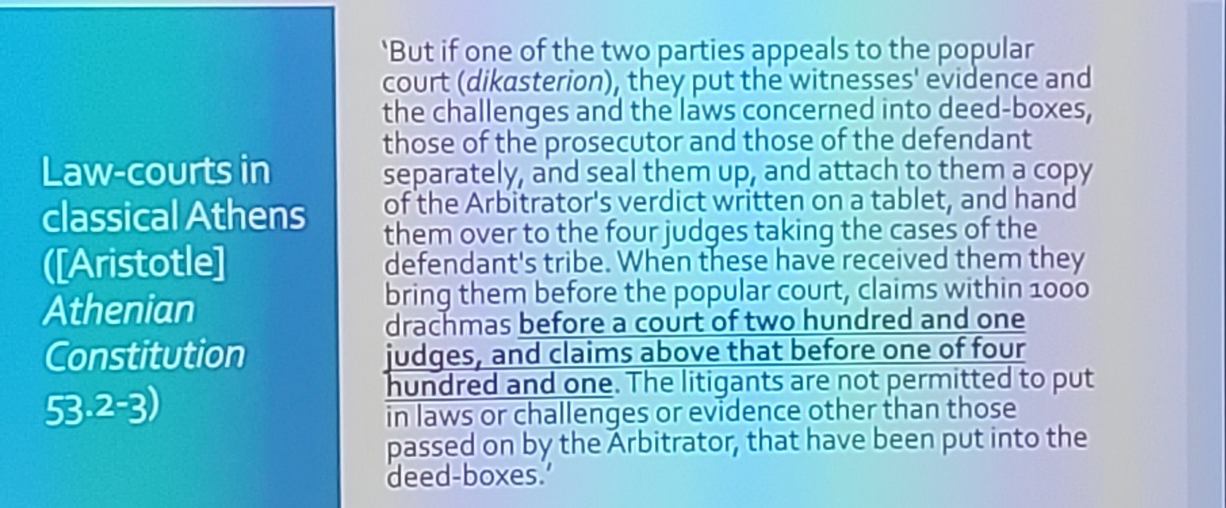The Development of State Institutions
1/8
There's no tags or description
Looks like no tags are added yet.
Name | Mastery | Learn | Test | Matching | Spaced | Call with Kai |
|---|
No study sessions yet.
9 Terms
Mycenae
There is evidence of an advanced political system, revolving around the king and his palace, but after this the palaces collapsed (burnt down).
How do we get there?
Orientalist Period (the epic period, 700ish)
Distinction between public and private citizens
There are no more kings, but instead magistrates who have a distribution of power among boards of officials.
These magistrates have term limits.
Judicial institutions are put in place, whereas before things were up to the king. The demos and the judges themselves now make those choices.
There are penalties for the abuse of office, and the punishments are written down in law to be seen by the public.
Public finances, taxes and infrastructure are funded by the community.
Violence becomes a public monopoly and it became uncommon, even frowned upon for citizens to go around armed. Ιt was only acceptable during a campaign.
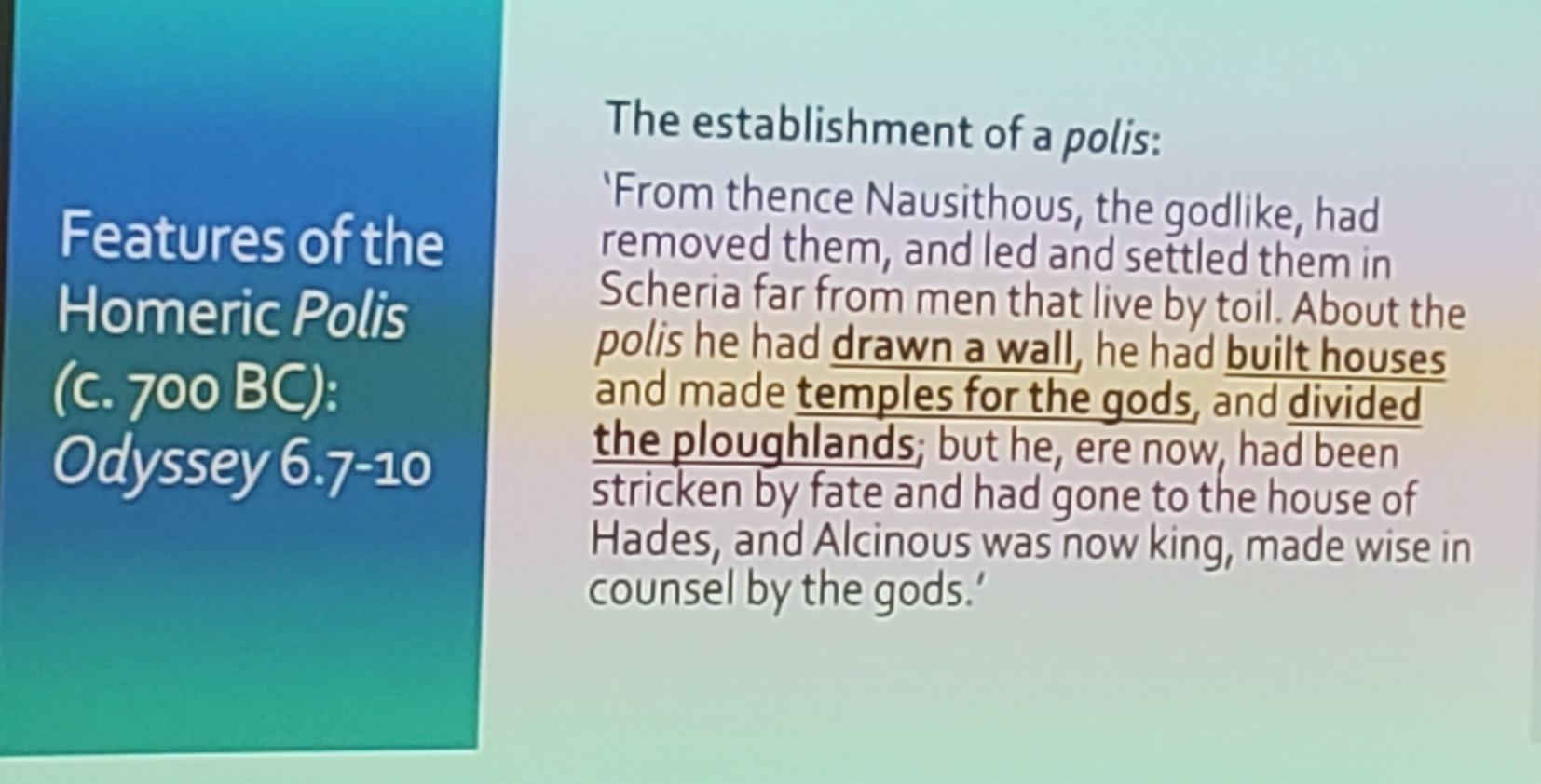
How do we know?
A model city had a council, limiting the king.
Sparta never had a wall… they needed it.
Everyone was entitled to land.
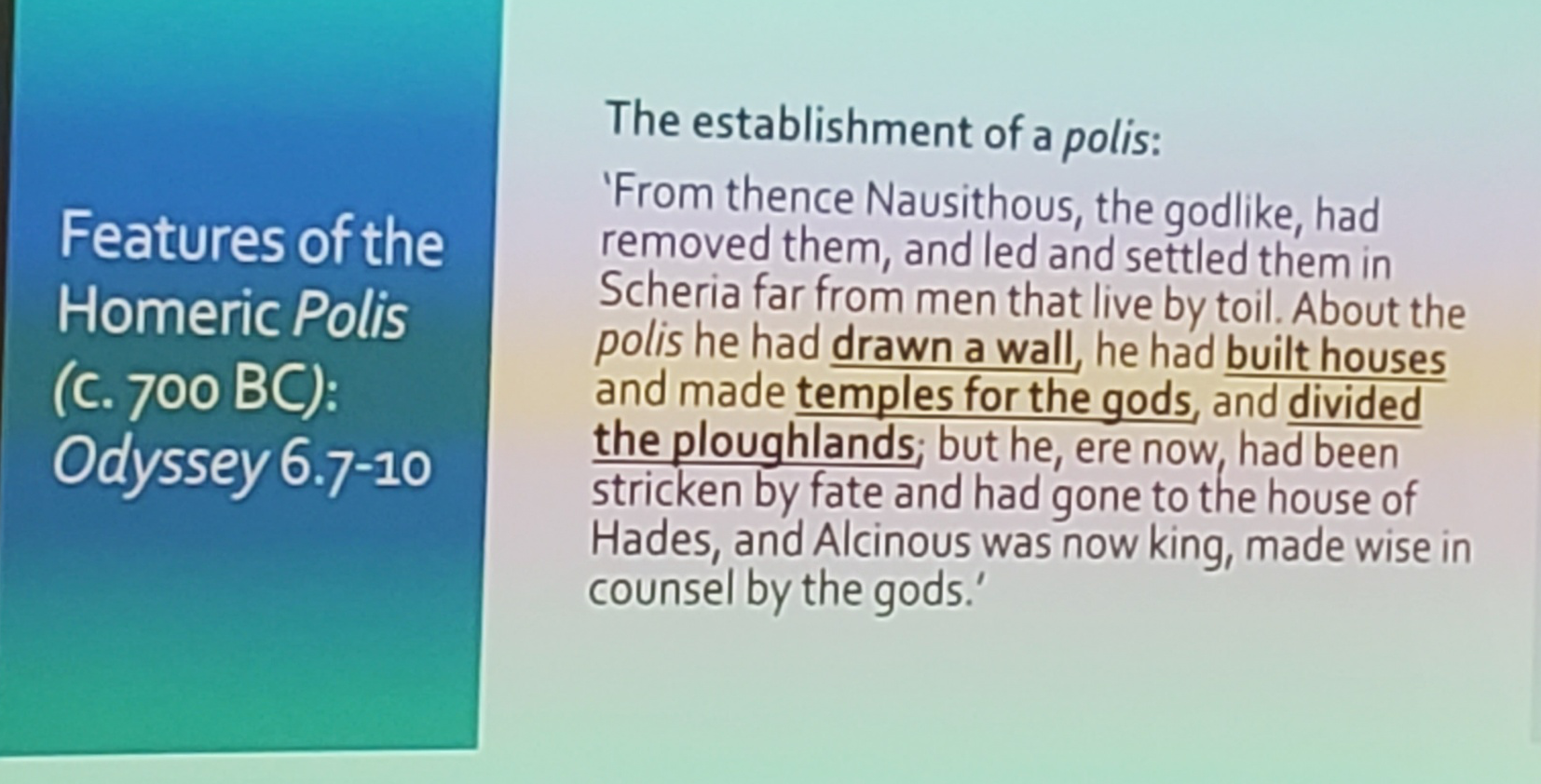
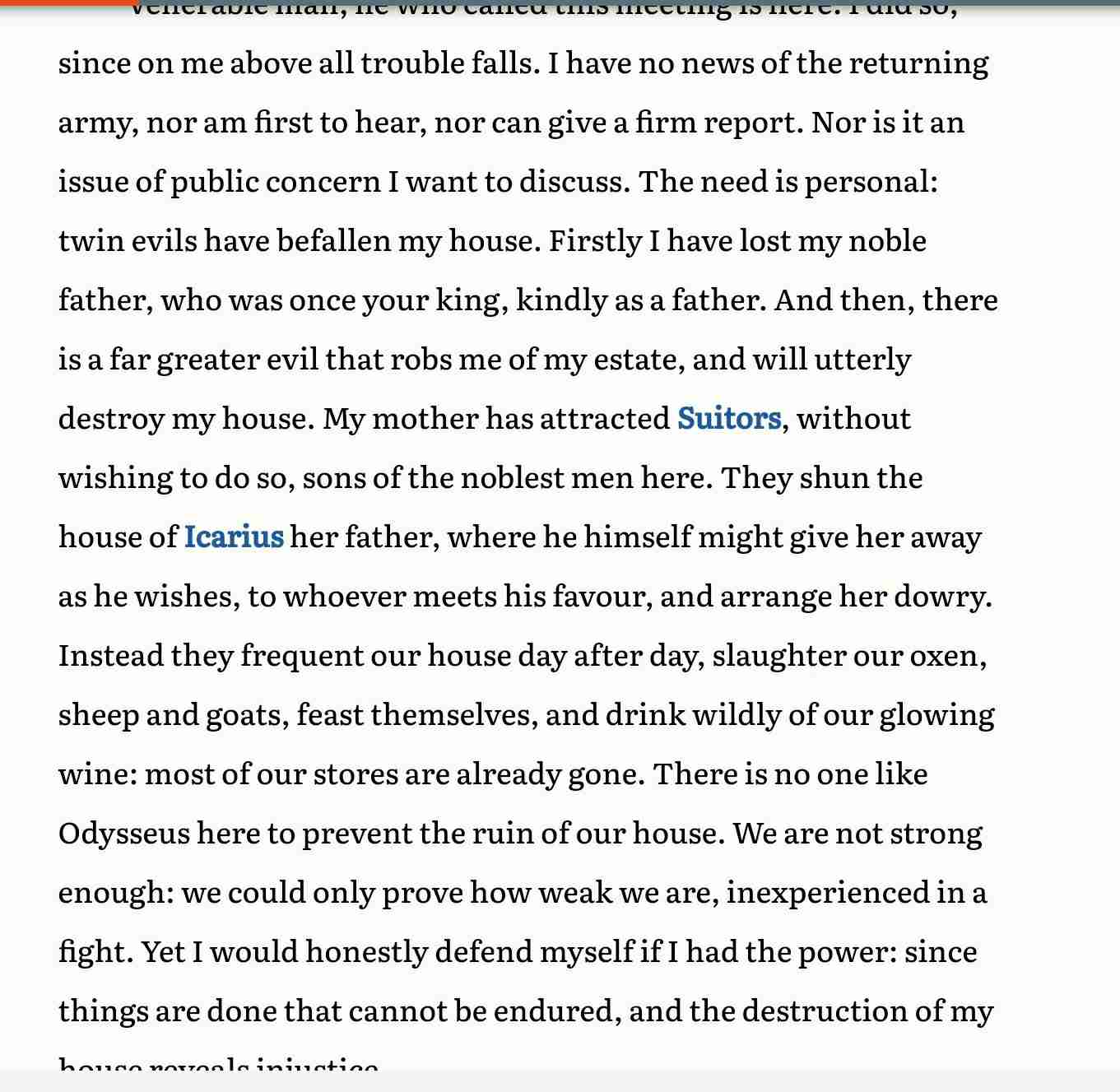
How do we know?
Seems uncomfortable that the men, without the βασιλευς would gather themselves.
very organised (skepter, herald)
Formalised procedure.
Describes how injustice would be pronounced by the κριτης/βασιλευς
A third party is needed to avoid the consequences of vengeance,
the bigman would enforce whatever he chose
but what if whatever he chooses is wrong?
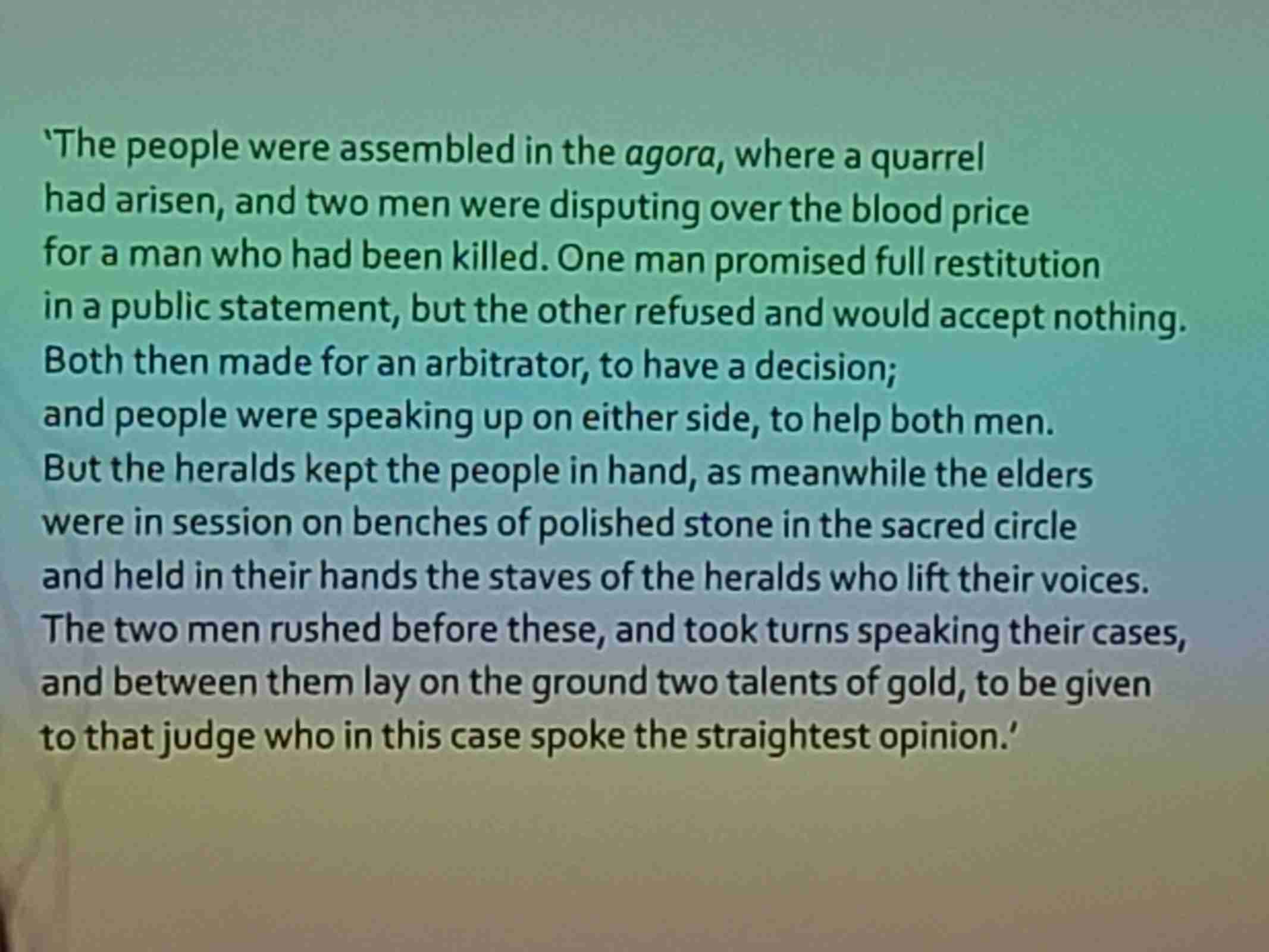
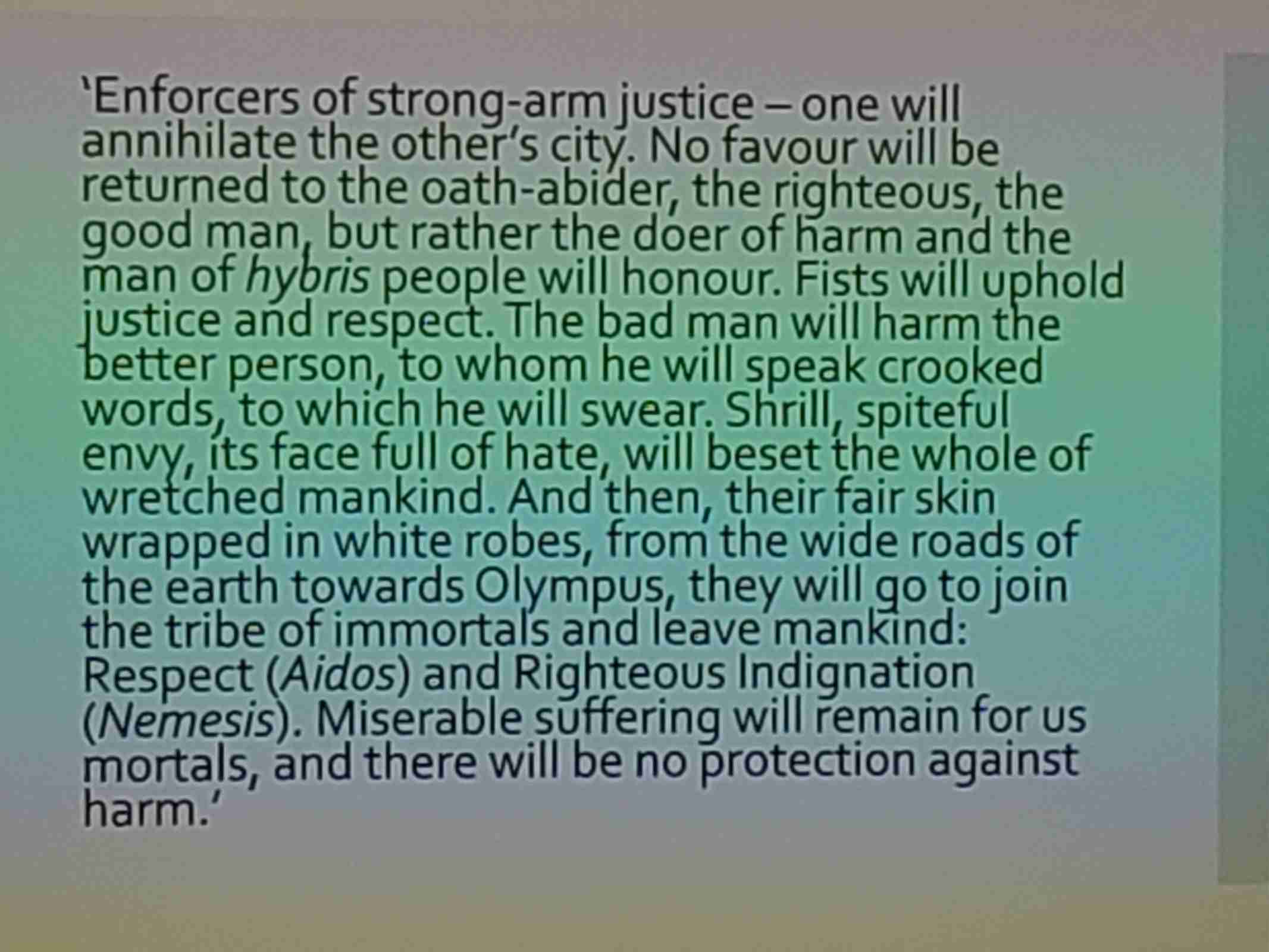
All these are motifs of Archaic literature?
Hesiod, Works & Days 258-64
unbridled power and greed
a lack of respect
destruction of social order
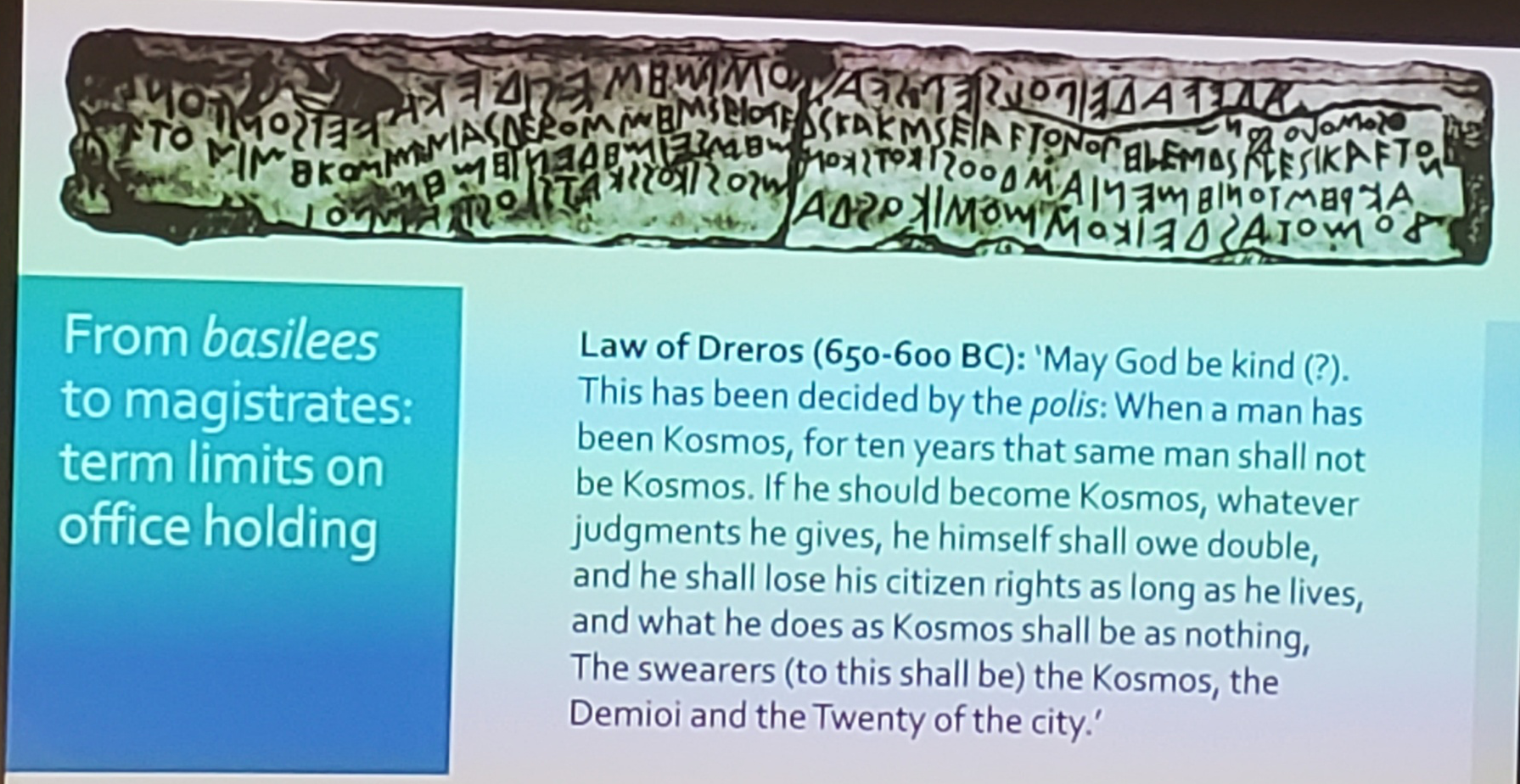
Law of Dreros (650-600BC)
The kosmos was the heigheset official but even they could not be in power forever.
Others are transcribed and transmitted, but this is the earliest greek writing.
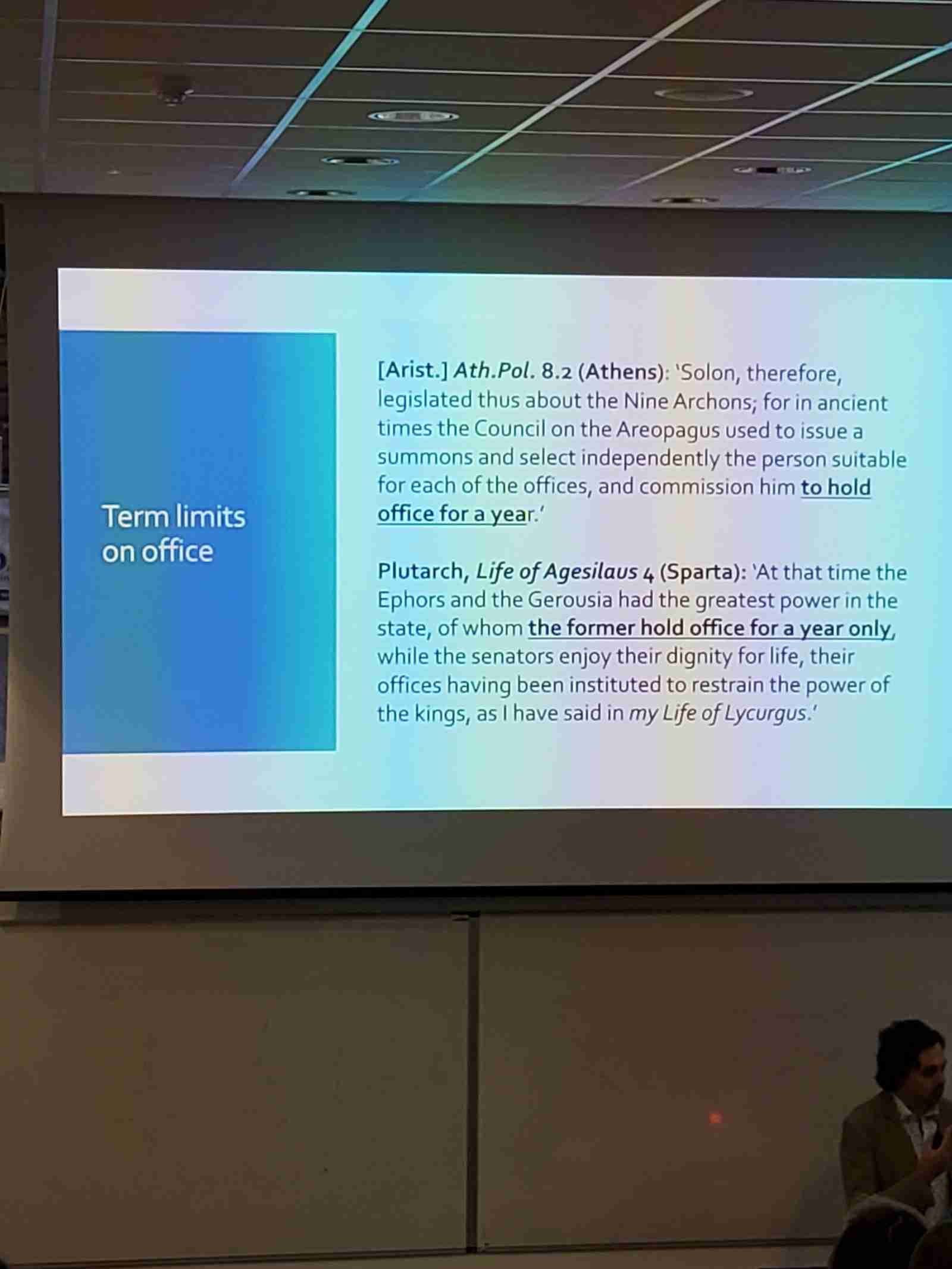
Even in Sparta, where there were kings, there are those who check on the kings as only one year.
This quickly, term restrictions, become very common and laws accompany them.
The laws are usually found in holy sanctuaries, thus are approved by the gods, and often come with curses.
NAUPACTUS: compare this with the worry about crooks from Homer and Hesiod.
It becomes more and more common for magistrates not to work alone. Checks and balances are built and built.
Even in Sparta, it is two kings rather than one.
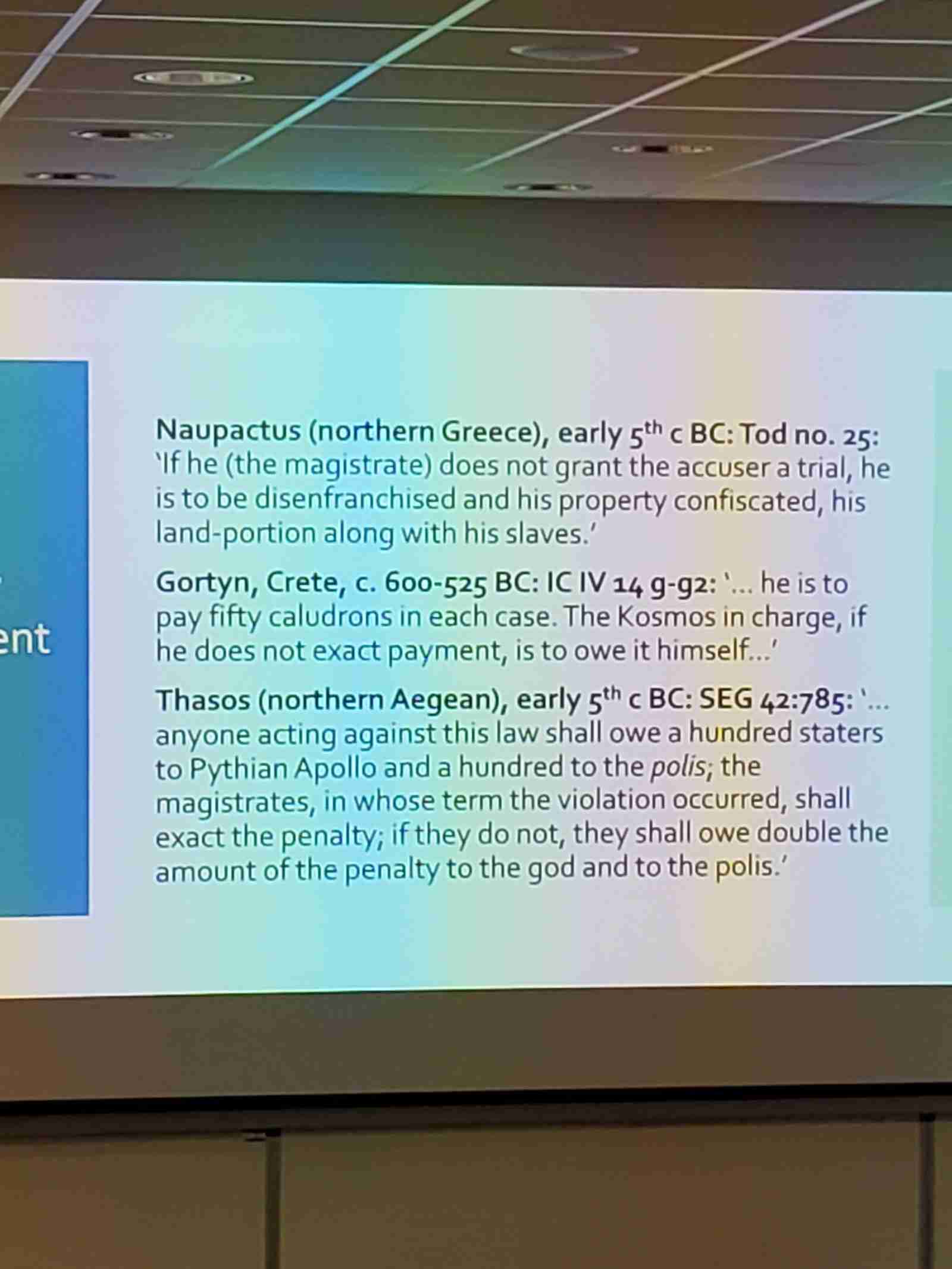
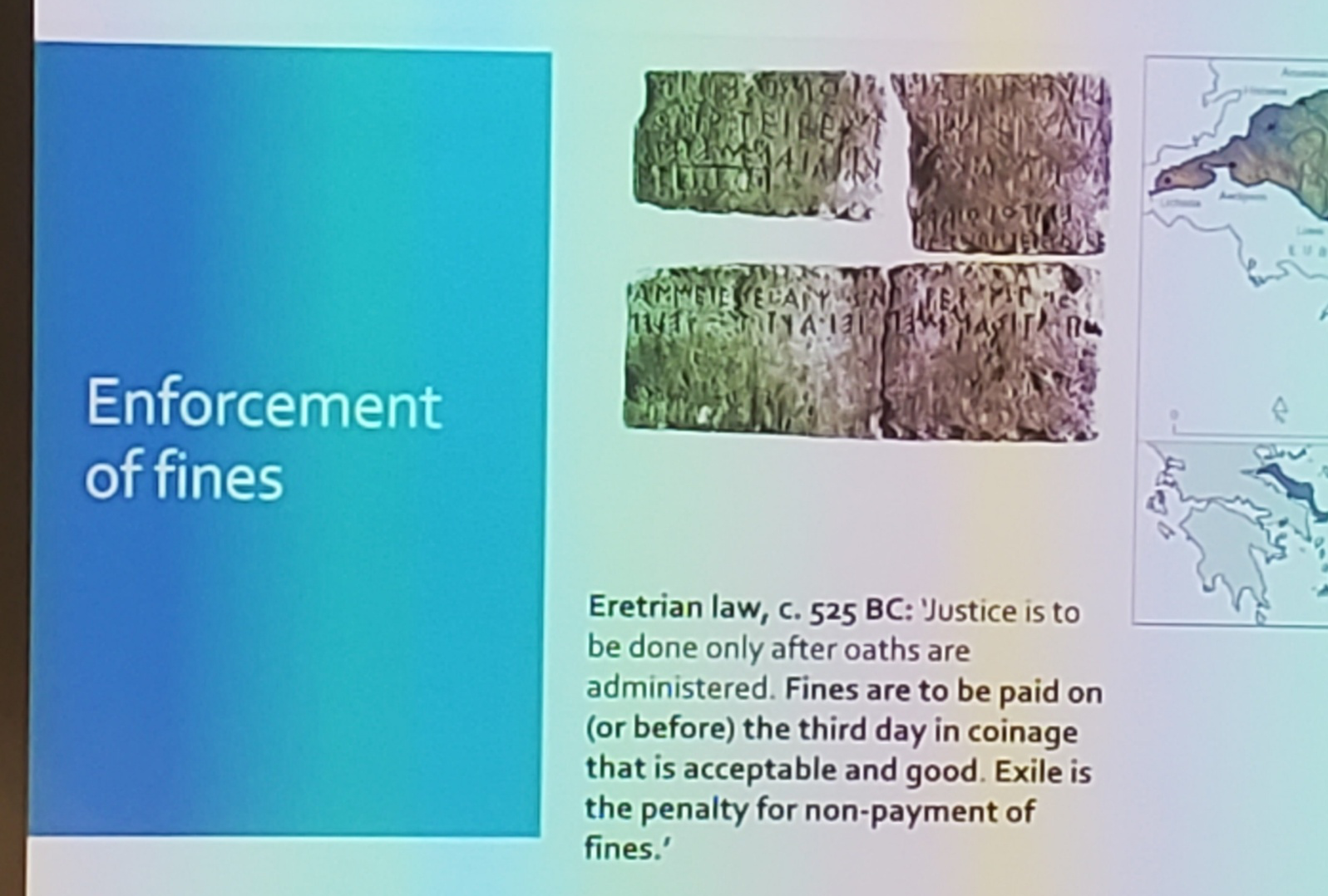
Enforcement of fines
Fines go to a communal resource, to be used for a variety of functions.
There were time constraints and punishments.
Naukurarai in Solon’s constitutions, public finances & fiscal arrangements, a tax.
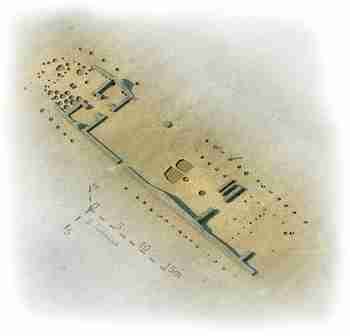
Toumba At Lekfani
A very wealthy couple buried here with many goods and even 3 hourses at the beginning of the iron age period, but these forces of wealth by the end of the period are seen as destablising.
they are thus often forbidden
Ripping out hair and hiring public mournors are forbidden when it is to show wealth, they are regulated by Solon.
